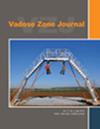Wolf prize awarded to Rien van Genuchten
IF 2.5
3区 地球科学
Q3 ENVIRONMENTAL SCIENCES
引用次数: 0
Abstract
Martinus Th. (“Rien”) van Genuchten has been awarded the 2023 Wolf Prize in Agriculture. The Wolf Prize is awarded to “outstanding scientists and artists from around the world for achievements in the interest of humanity and friendly relations among people.” The prize is awarded in the disciplines of medicine, agriculture, mathematics, chemistry, and physics. For agricultural sciences, the Wolf Prize is widely considered one of the world’s most prestigious recognitions. Rien van Genuchten was born in 1945 in Vught, The Netherlands. He received his early education at the Agricultural University of Wageningen, The Netherlands, and his PhD at New Mexico State University in the United States. He then spent most of his career at the US Salinity Laboratory in Riverside, CA, before moving to the University of Rio de Janeiro, Brazil, and to Utrecht University, The Netherlands. One of his most influential publications describes a closed-form equation for predicting the hydraulic conductivity of unsaturated soils, known as the van Genuchten equation (van Genuchten, 1980). He was, together with Jirka Simunek, the developer of the widely used HYDRUS software package for simulating the movement of water, heat, and solutes in variably saturated media (Šimůnek et al., 2016). Early in his career, he also published a compendium on analytical solutions of the one-dimensional convection–dispersion equation (van Genuchten & Alves, 1982), a resource widely used to analyse solute transport at the column and field scale.沃尔夫奖授予Rien van Genuchten
中国对外Th。(“Rien”)van Genuchten被授予2023年沃尔夫农业奖。沃尔夫奖授予“来自世界各地的杰出科学家和艺术家,以表彰他们为人类利益和人民之间的友好关系做出的成就”。该奖项颁发给医学、农业、数学、化学和物理等学科。在农业科学领域,沃尔夫奖被广泛认为是世界上最负盛名的奖项之一。1945年,Rien van Genuchten出生于荷兰的Vught。他在荷兰瓦赫宁根农业大学接受了早期教育,并在美国新墨西哥州立大学获得了博士学位。之后,他在加州河滨市的美国盐度实验室度过了大部分的职业生涯,之后又去了巴西里约热内卢大学和荷兰乌得勒支大学。他最具影响力的出版物之一描述了一个用于预测非饱和土壤水力导电性的封闭形式方程,称为van Genuchten方程(van Genuchten, 1980)。他与Jirka Simunek一起开发了广泛使用的HYDRUS软件包,用于模拟变饱和介质中水、热量和溶质的运动(Šimůnek et al., 2016)。在他的职业生涯早期,他还出版了一维对流-色散方程解析解的概要(van Genuchten & Alves, 1982),这是一种广泛用于分析柱级和场级溶质输运的资源。
本文章由计算机程序翻译,如有差异,请以英文原文为准。
求助全文
约1分钟内获得全文
求助全文
来源期刊

Vadose Zone Journal
环境科学-环境科学
CiteScore
5.60
自引率
7.10%
发文量
61
审稿时长
3.8 months
期刊介绍:
Vadose Zone Journal is a unique publication outlet for interdisciplinary research and assessment of the vadose zone, the portion of the Critical Zone that comprises the Earth’s critical living surface down to groundwater. It is a peer-reviewed, international journal publishing reviews, original research, and special sections across a wide range of disciplines. Vadose Zone Journal reports fundamental and applied research from disciplinary and multidisciplinary investigations, including assessment and policy analyses, of the mostly unsaturated zone between the soil surface and the groundwater table. The goal is to disseminate information to facilitate science-based decision-making and sustainable management of the vadose zone. Examples of topic areas suitable for VZJ are variably saturated fluid flow, heat and solute transport in granular and fractured media, flow processes in the capillary fringe at or near the water table, water table management, regional and global climate change impacts on the vadose zone, carbon sequestration, design and performance of waste disposal facilities, long-term stewardship of contaminated sites in the vadose zone, biogeochemical transformation processes, microbial processes in shallow and deep formations, bioremediation, and the fate and transport of radionuclides, inorganic and organic chemicals, colloids, viruses, and microorganisms. Articles in VZJ also address yet-to-be-resolved issues, such as how to quantify heterogeneity of subsurface processes and properties, and how to couple physical, chemical, and biological processes across a range of spatial scales from the molecular to the global.
 求助内容:
求助内容: 应助结果提醒方式:
应助结果提醒方式:


